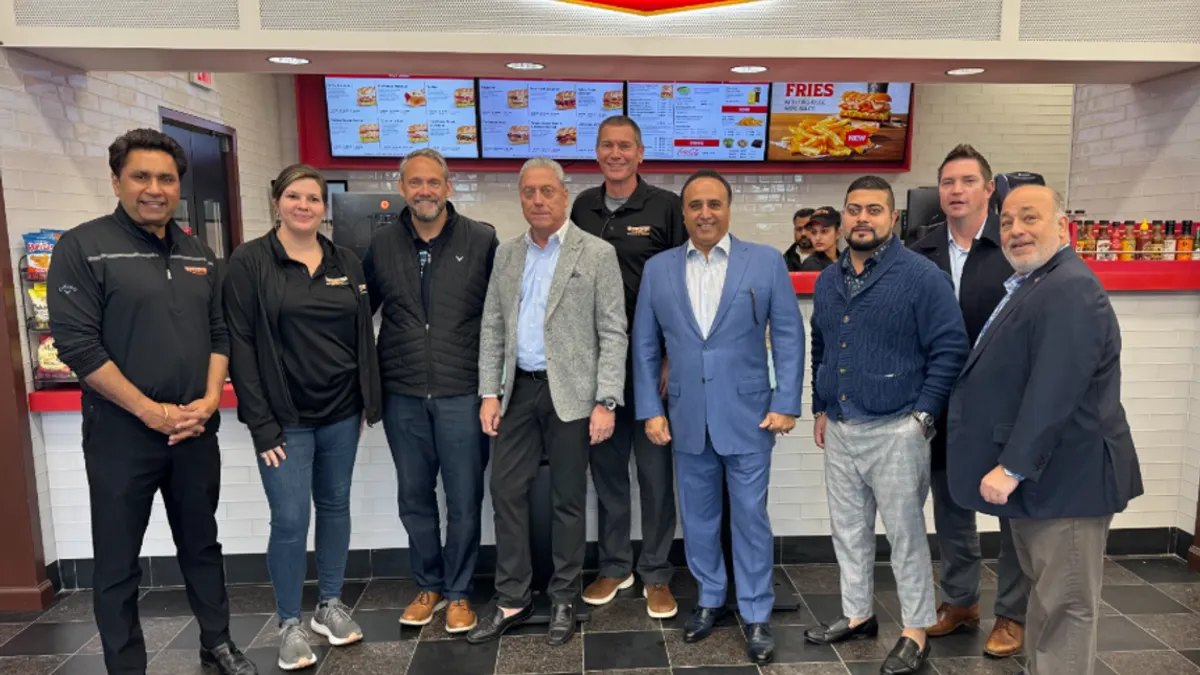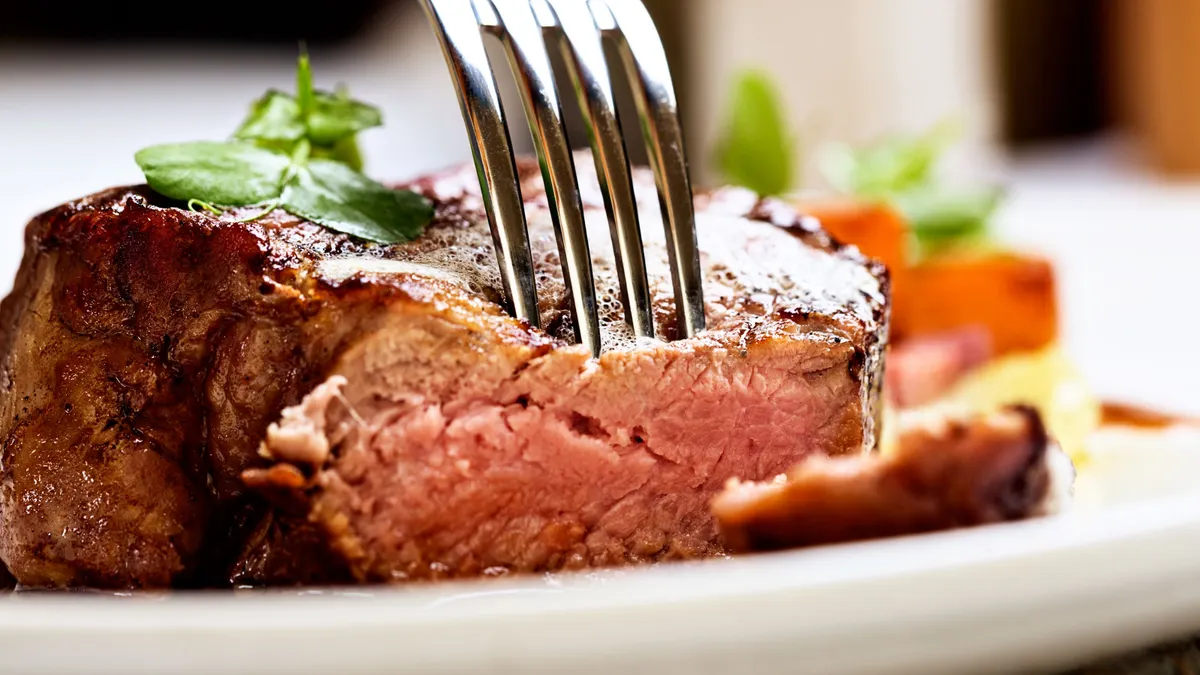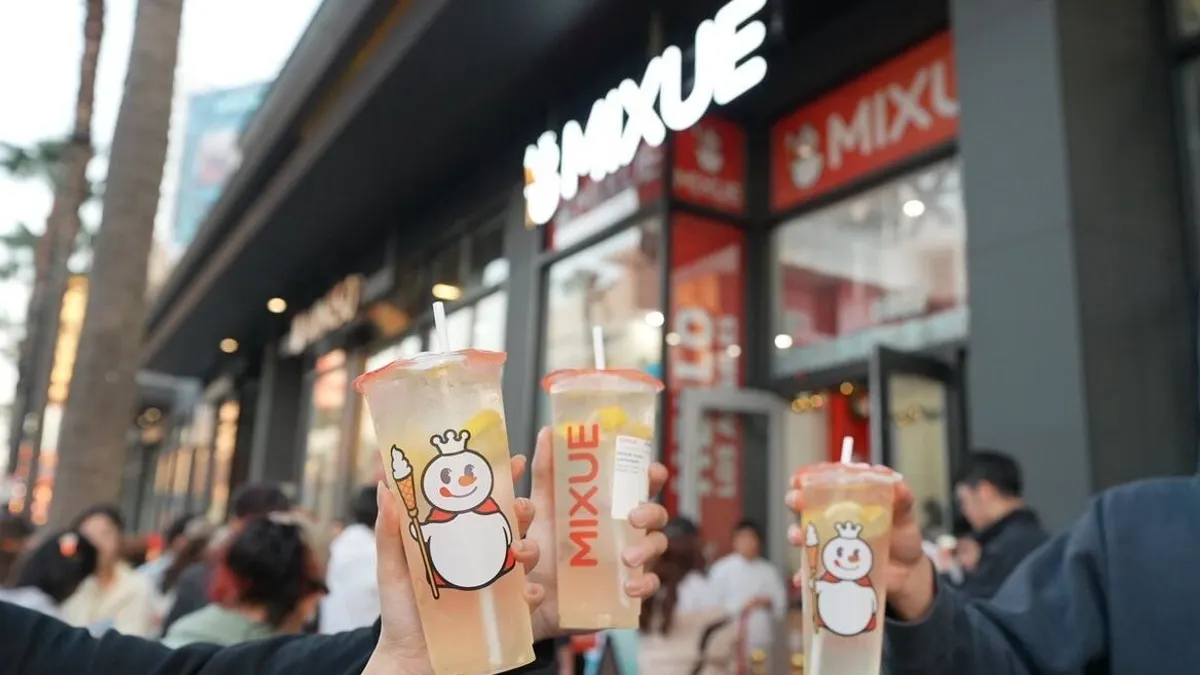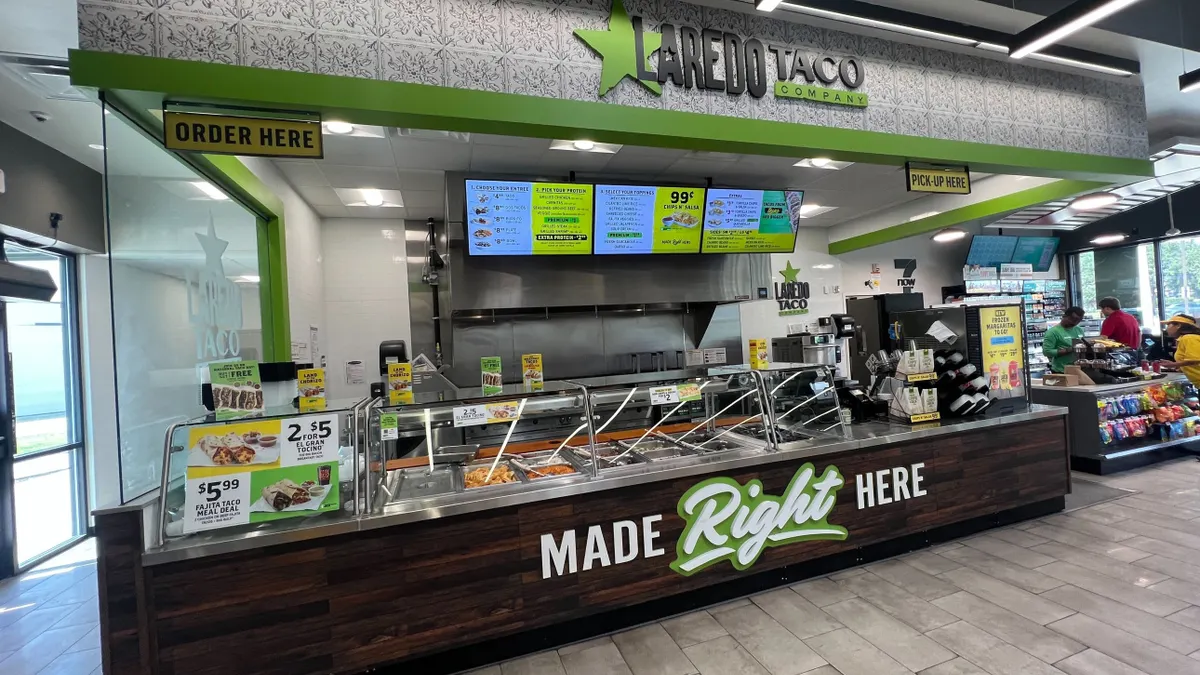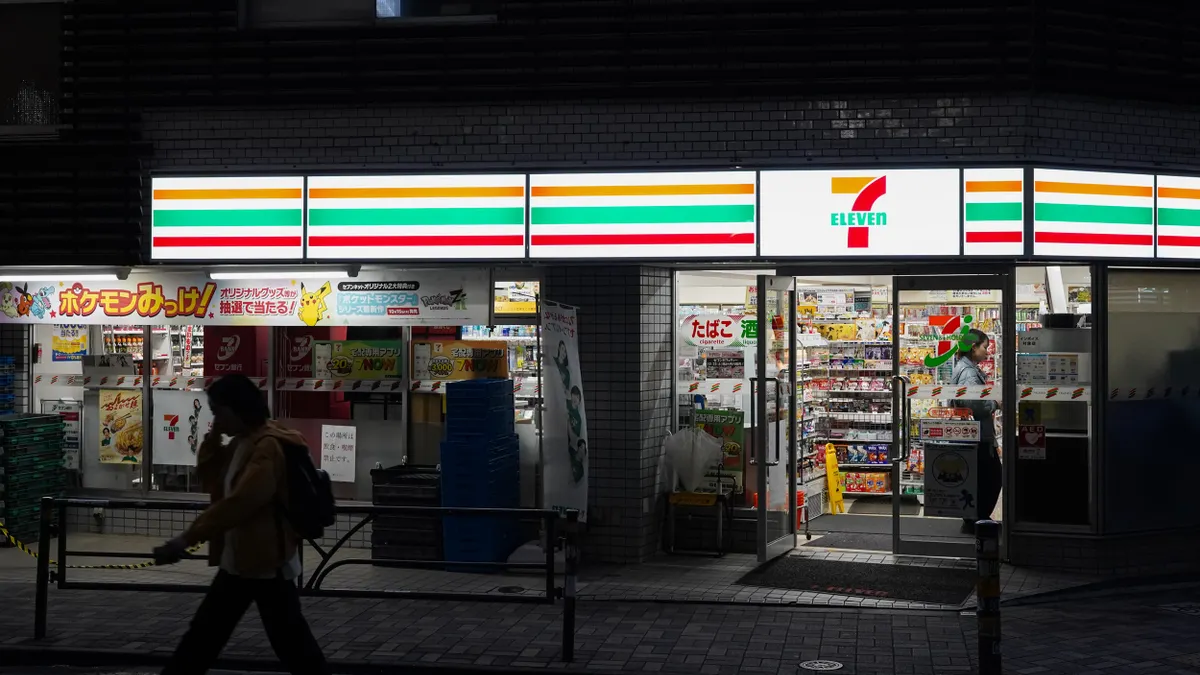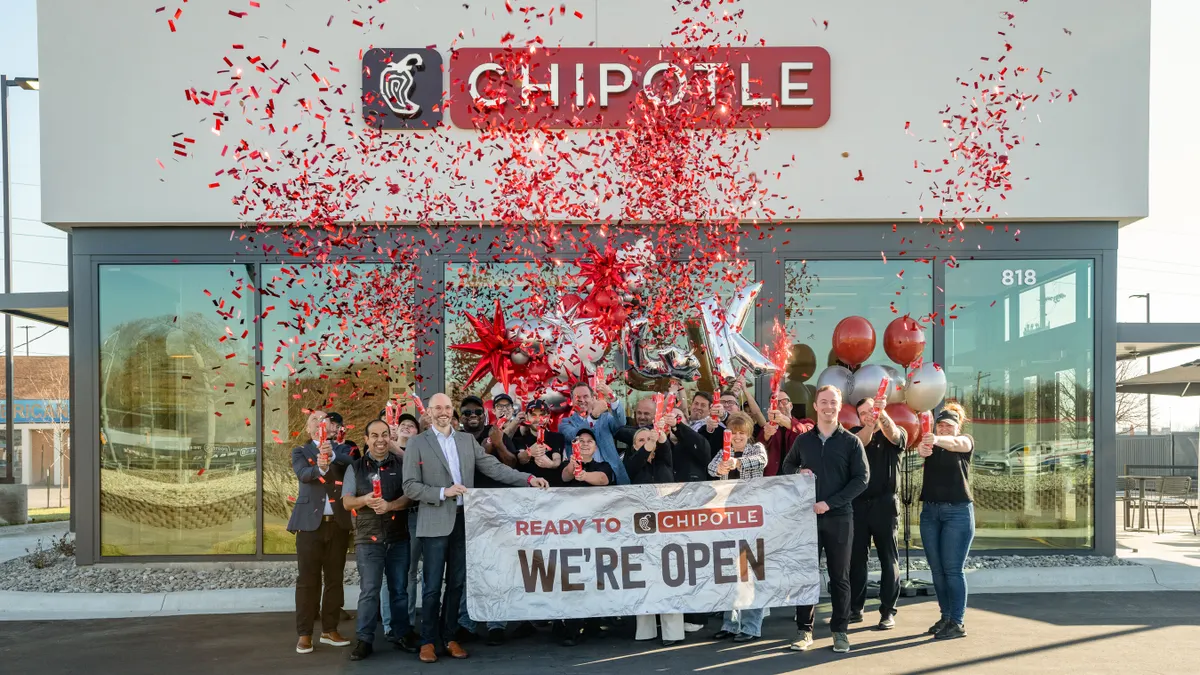Waffle House, a cultural icon, is perhaps best known for it's 24/7 service. In fact, the restaurants so rarely cease operations that the Federal Emergency Management Agency (FEMA) even has a Waffle House test — an informal measure of how badly a community has been hit by disaster and how quickly it’s expected to rebound.
As a result, the company also is becoming known as a steadfast community pillar during hurricanes and other natural disasters. But what happens to these restaurants and their employees when the worst happens? HR Dive recently spoke with Pat Warner, director of PR and external affairs at Waffle House, to get an in-depth look at the restaurant’s emergency response philosophy, procedures and logistics. Questions and answers have been edited for length and clarity.
HR Dive: How does Waffle House prepare for an impending storm?
Pat Warner: We call it showing up — getting the resources in place before the storm. But really the key to our response is our leadership is in the field. They’re not back here at our headquarters in Norcross, Georgia; they're not back here looking at monitors to see what's going on. They're actually on the ground.
So, for example, for Hurricane Michael, our CEO was staged right outside the storm so he could get in there right after the storm. Michael was so widespread on the Gulf Coast it affected two of our executive vice presidents. They and their leadership were staged outside of the strike zone. Depending on the storm, we can ramp up or down.
FEMA has gone to a lifeline approach: People, utilities and food are the three main things you need after a major disaster. Our food vendor was ready to roll in with some trucks, and before the storm we do a lot of prep of the restaurants — getting food in them. You kind of take a bet that maybe they'll make it through the storm and then we’ll have food ready to go. We’ll hook up some small generators on some restaurants before the storm, mainly to run the cooler to keep food safe.
HR Dive: Do you have special storm shut-down procedures?
Warner: We’re a 24-hour restaurant. We're open 365 days a year. So it's really tough for us to close restaurants, believe it or not, because our managers don’t do that — they never turn anything off. So when we have to close restaurants down for a mandatory evacuation, that's a big process for us. We need to close them down the right way so we can reopen them. We have a storm playbook and it has a checklist in there.
Before Michael, we shut down 20 restaurants that were under mandatory evacuations. Our goal is to get the restaurant open as quickly as we can after the storm. Right after Michael came through, we had 30 restaurants that were closed. Within five days, all but three that were significantly damaged were back open.
HR Dive: How do you get back up and running?
Warner: We will bring in some generators that can run the whole restaurant. We also have a fuel depot set up because you have to re-supply the generators with fuel; we have a whole team that does that.
We also bring in what we call "jump teams." Those are typically restaurant operators from a couple of states away. We bring them in mainly because the local folks have evacuated, or are taking care of family, so we bring in restaurant operators that can help get those restaurants open.
For Michael, we brought in more than 300 jump team members. Typically we’ll bring them in from a couple of states out, because the next states around the strike zone are going to be busy. That's where they’re evacuating to, so you can't bring those restaurant operators out. We closed a quarter of our restaurants in the whole system for Michael. We have 2,000 restaurants and about 500 — and 13,000 associates — were in the path of the storm.
Another, more recent addition to our crisis response is our catering team's food truck. When one of our restaurants in Panama City was severely damaged, we were able to get the food truck down there. And for three days they just gave out meals, about 2,000 a day.
So that's part of our game plan now: If we have a restaurant that is severely damaged, we will try to get the food truck set up in the parking lot because that area needs it, both the residents and relief workers.
HR Dive: A lot of this is more than basic emergency procedures. Where does this corporate social responsibility mindset come from?
Warner: We were founded in 1955 by two gentlemen. One, Joe Rogers, Sr., worked for another 24-hour restaurant before opening up Waffle House. He was always talking about service to the community. Even though we have 2,000 restaurants, each one is that community’s restaurant.
So for every day we're open and we never close, we’re there for the community. He set up that culture, and his son is now chairman and has continued with that culture of showing up.
It’s not a business play because these are not money-making deals. If we’re closed, our associates are not making money, and we have a responsibility to them. Also, for the community, we’re there throughout the year, 24 hours a day, 7 days a week, 365 days a year. So we feel like the community looks at us to get open quickly because they're used to us being there.
HR Dive: Is this a philosophy you encourage other businesses to embrace?
Warner: We have talked with a lot of other businesses (Walmart, Target, Walgreens, Home Depot, Lowe’s — and Publix was great in Michael). We all feel that if we can get open quickly it brings the community back faster. If we're open, and the Walmart next to us is open, and the Walgreens is open, the community’s coming back online. And so that's really why we do it.
We also meet with other restaurants and share what we do with them. We want more restaurants open because it kind of takes some of the pressure off of us; if we're the only place open, it's crazy.
HR Dive: Do you have any advice for other companies looking to follow the Waffle House example?
Warner: When I get to speak with other companies, I first tell them this happens from the top down. Second, it's important to always think about the people; a lot of times in business it’s more about the things, not the people. Your main resource is people.
You might want to talk about your fleet of vans, or your building, or this or that, but it should be the people first. And that's what we try to do — we try to keep focused on our associates, and that's our top priority, and then it's getting the restaurant to open.
HR Dive: Does this help with your employee recruitment and retention efforts?
Warner: It definitely does. That's the other benefit of having your leadership there. When the CEO is elbow-to-elbow cooking and washing dishes with you, that boosts you up.
It really helps cement that culture with our associates and also the customers, too. In Panama City, when we were getting the restaurant open, the customers were lined up outside waiting for us. They were cheering the workers when they got there. And some of the customers were helping us clean up the parking lot and doing whatever they could do.
We had an ice storm a few years ago here in Atlanta and we had one restaurant where it was just the manager and one cook, but a lot of people abandoned their cars on the interstate and walked up to this restaurant. And so the restaurant is full and the manager’s like, "I don't know what to do," so the customers actually got behind the counter and the washed the dishes and took orders to keep the restaurant open. People rely on us — and then they’ll step in.






